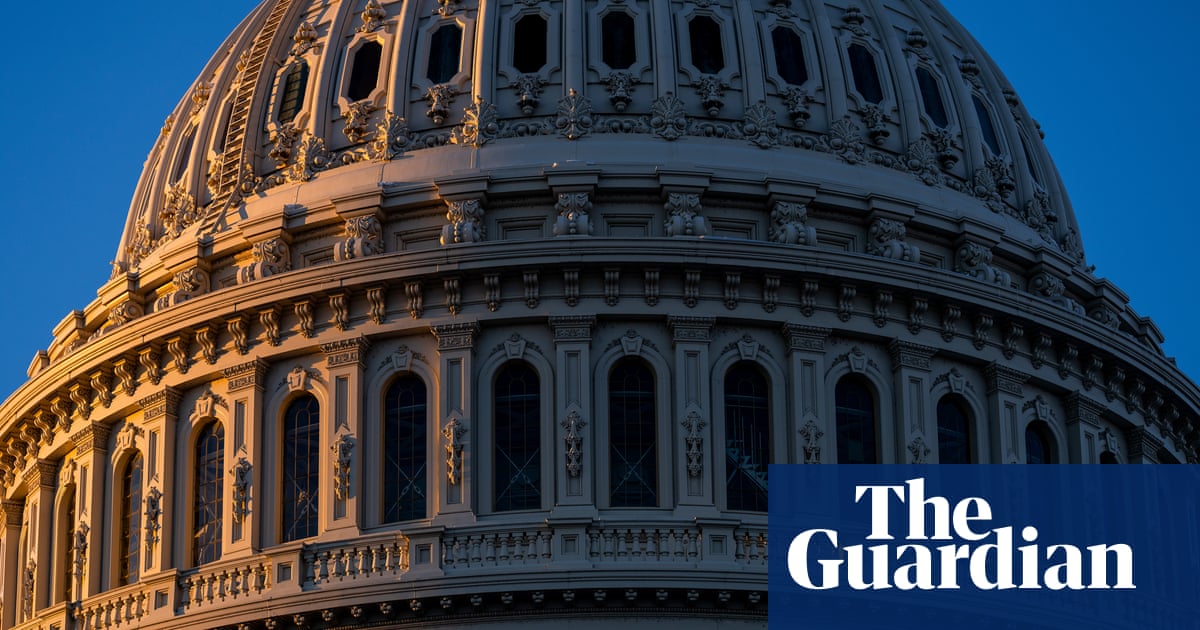Package passed Senate late Friday night by vote of 74-24, narrowly averting shutdown and banning Gaza aid through March 2025
President Joe Biden on Saturday signed into law a $1.2tn budget bill to keep the US government funded through a fiscal year that began six months ago and to avert a partial shutdown, according to a statement released by the White House.
“The bipartisan funding bill I just signed keeps the government open, invests in the American people, and strengthens our economy and national security,” Biden said in the statement.
The bill was passed in the Senate after midnight in a vote that fell 74-24. It came after funding had expired for government agencies, but the White House sent out a notice shortly after the deadline announcing the Office of Management and Budget had ceased shutdown preparations because there was a high degree of confidence that Congress would pass the legislation and the president would sign it on Saturday.



Every October we start a “fiscal year” and because we don’t plan ahead we do one year at a time.
So October 1st every year a new budget takes effect.
But the House. Senate, and president all need to agree on a single budget, which often includes random shit.
Like, this one bans aid to UNRW till 2025 based on Israeli Intel we know was false and obtained via torture. But it’s in this budget.
So unless the same party controlls all three of those parts of our government, they can never agree on a budget, which means constantly passing “interm budgets” so that the government keeps running.
Sometimes those interm budgets aren’t enough and leads to partial government shutdowns. In 2019 the Coast Guard went a month without pay checks. So sometimes it’s a big deal. Other times people are just forced to take paid leave because it’s paid out of a different allocation.
But it makes it even harder for agencies to plan, the more long term you can plan, the better. But these short term continuing resolutions essentially make agencies operate “paycheck to paycheck”.
So…
Unfortunately, yeah. It has been for a while now. But we do get a few years here and there where we easily pass the budget on 10/1.
You’ll probably start hearing about the next one coming Sept 1st for the pregame.
https://www.pewresearch.org/short-reads/2023/09/13/congress-has-long-struggled-to-pass-spending-bills-on-time/ seems to have a pretty decent grasp of the history warts mostly included if anyone wants more info.
The current process was established in 1974. Not everyone gets furloughed for every shutdown, and it’s worth noting the government is the biggest employer in the country iirc & manages social security benefits, and taxes don’t stop while the shutdown happens. Basically it’s a huge mess and the '74 law needs serious reform to require Congress to compromise on a budget again as a requirement of their role.
Ridiculously expensive as well.
Sometimes we’ll hear about “they’ll get paid later, it’s fine”.
But to push all those payments out ASAP at a moments notice it costs millions in overtime. Just burning money for no reason.
We need to have general budgets for like a decade at a time. Build in adjustments for inflation, but if anything major changes during that decade, just have a process for doing amendments for that shit.
The basic ahit is safe and agencies can be proactive instead of reactive. Hell, require the budget be finalized a year before implementation even.
This shit sucks so bad it’s legitimately not hard to think of a better system